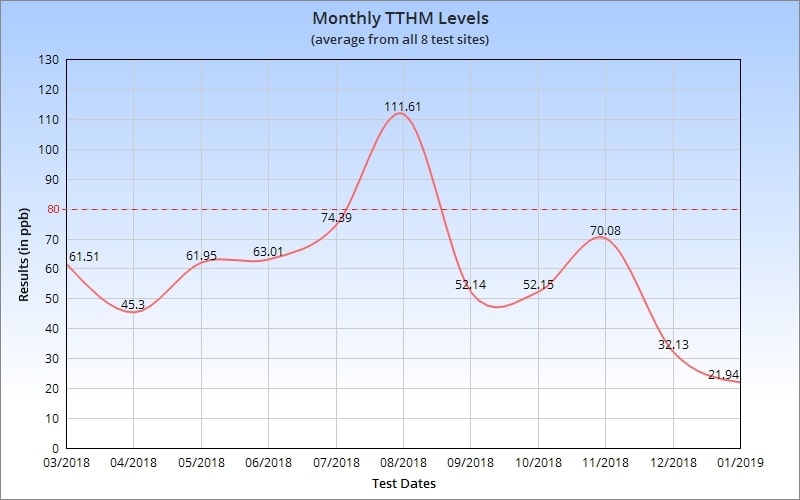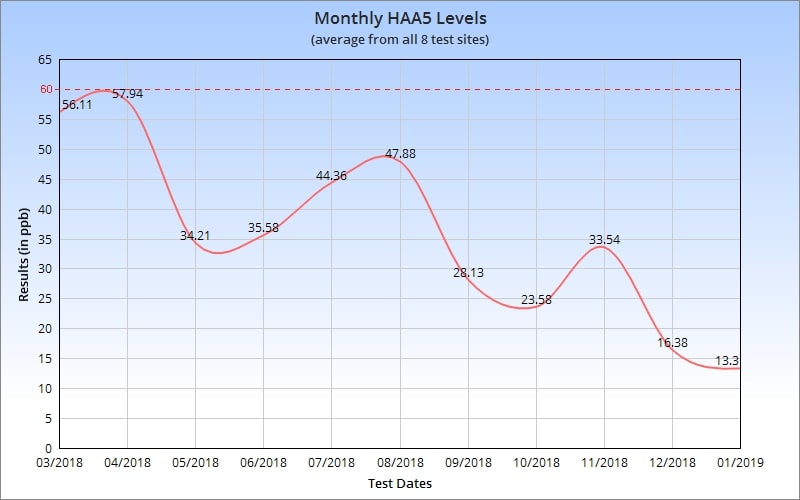Water Quality Improved Quickly, and Data Consistently Shows it is Safe to Drink
Water Quality Improved Quickly, and Data Consistently Shows it is Safe to Drink
TRENTON, N.J. – In the months since Mayor Gusciora’s inauguration, Trenton’s water has shown quick and incredible improvements in quality and safety. Major changes at Trenton Water Works has led to measurable and consistent drops in contaminant levels. This is shown in the charts below and attached, prepared by Trenton Water Works, and are based on average sample results from all 8 sampling sites.
“This is great news for our city,” said Gusciora. “Water quality is a big issue for our region, but I’m happy to report that the changes we’ve been making at Trenton Water Works are paying off in a big way. These are real, visible improvements.”
With each month, the water utility has made great strides in providing high-quality water and protecting the health and safety of water customers. As the data shows, the water is safe to drink and continues to improve in quality.
The New Jersey Department of Environmental Protection monitors two main contaminants as a result of water treatment. Haloacetic acids (HAA5) are chemicals that can form as a result of water treatment, when water acidity and temperature are slightly high and treatment chemicals react with organic particles or bromide. They can occur during water treatment involving chlorination. Total trihalomethanes (TTHM) are a group of disinfection byproducts that form when chlorine compounds that are used to disinfect water react with other naturally occurring matter (eg, leaves) in the water.
Gusciora said the samples show demonstrative improvement to Trenton’s water.
“The water utility has shown five straight months of being below the maximum contaminant level of 80 parts per billion of TTHM and a year of being below the maximum contaminant level of 60 parts per billion of HAA5,” said Gusciora. “Since my inauguration, Trenton Water Works, under the direction of Dr. Shing-Fu Hsueh, has been working diligently to make improvements to the water delivery system, including system upgrades and hiring well-qualified professionals.”
The way violations are assessed, it may take a bit more time until the notices cease. However, Gusciora reiterated that the progress is significant, and the data shows the water is safe to drink.
Violation notices from the New Jersey Department of Environmental Protection are based on averages of the past four quarters, not the most recent results. As such, residents may continue to receive DEP notices until the continued low contaminant levels average out an abnormally high TTHM level from August.










